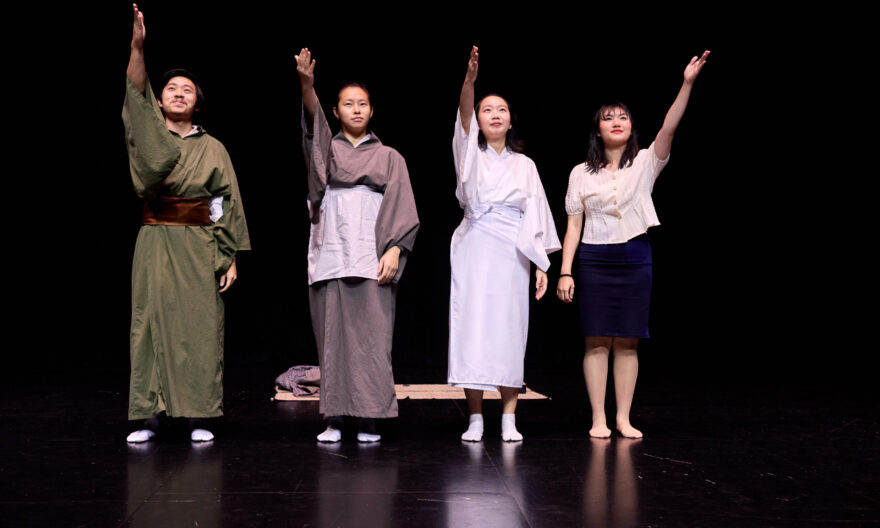Social sciences professors at Yale-NUS write about meritocracy, power and time
Over the past year, Yale-NUS College faculty covered a diverse range of topics in their authorial endeavours. Faculty members from the Social Sciences division have authored several upcoming books that look into human society and social relationships.
Assistant Professor of Social Sciences (Anthropology) Zachary Howlett’s latest book in progress, Fateful Rite of Passage: The National College Entrance Examination and the Myth of Meritocracy in Post-Mao China, is based on two years of anthropological field work conducted in China’s Fujian Province. During the two years, Dr Howlett employed the method of “participant observation”, teaching in underprivileged rural and urban high schools and interacting closely with students, parents, teachers, administrators, and officials.
 Image by Saksham Mehrotra for Yale-NUS College.
Image by Saksham Mehrotra for Yale-NUS College.
“This book asks why people in China widely regard the examination as ‘China’s only relatively fair competition’ – and thus as a cornerstone of meritocracy – despite wide disparities in exam scores between different regions and socioeconomic groups. I argue that the examination is a fateful rite of passage in which people personify high cultural virtues, like diligence, grit, composure, and divine favour,” shared Dr Howlett.
The primacy of what this book seeks to appraise and analyse is rooted in China’s history and the relevance it has to the rest of the world. The College Entrance Examination is largely seen by the Chinese people as a cultural continuation of the country’s imperial-era civil examinations.
“Many places around the world now employ comparable systems of social selection, but China was the first, and it arguably influenced the uptake of similar cultures of meritocracy elsewhere. Because of its unique cultural history of examination-based meritocracy, China sheds important comparative light on the present and future of this social ideal in an era of globally increasing economic and educational inequality,” he added.
Another professor whose book focuses on China, is Assistant Professor of Social Sciences (Political Science) Chin-Hao Huang. His book is titled Power, Restraint, and China’s Rise.
Dr Huang challenges the conventional wisdom that rising powers tend to disrupt international peace and security, as was the case with Germany and Japan in recent history. Rather than assuming that China’s rise would follow the same trajectory, he examines why and how China’s foreign policy might reflect restraint even as its economic and military capabilities increase at unprecedented rates. In doing so, the book advances the argument that a rising power’s aspirations for acceptance—or legitimacy—by other states provide an important, yet understudied, rationale for restraint.
 Image provided by Centre for Teaching & Learning
Image provided by Centre for Teaching & Learning
“Put simply, power that rests on validation from others is more enduring than influence that derives from military clout and coercion,” explained Dr Huang.
Many theories in international politics are developed primarily in the European context and these can either account for – or fail to explain – the patterns of conflict and cooperation in Asia. Dr Huang hopes to bridge the gap between theory and practice in this book.
“My hope is that the book’s findings will provide further clarity to a wide range of audiences, including scholars, practitioners, and the general public, about changes in China’s foreign policy behavior, and what has or has not worked in the recent past, and what is likely to work in the future in incentivising China to assume the role of a responsible power,” said Dr Huang.
Reflecting on how his teaching in the College has influenced his research, Dr Huang remarked that he enjoys testing working ideas and hypotheses with his students.
“I encourage my students to disagree with me and their classmates without being disagreeable; at the end of the day, it’s about getting them to think for themselves, to develop an informed point of view that draws from a careful critique of the argument’s causal logic and empirical consistency.”





